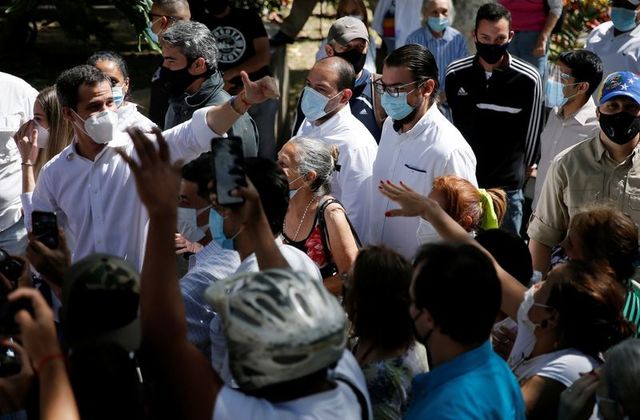CARACAS (Reuters) – Venezuela’s opposition, led by Juan Guaido, on Saturday concluded a “popular consultation” to repudiate President Nicolas Maduro’s government after boycotting a congressional vote last Sunday.
The consultation, which started virtually on Monday and ended Saturday with an in-person vote, aimed for some 7 million Venezuelans to participate, at least 50% living outside the country, according to organizers. Results were expected later on Saturday.
The effort was aimed at helping the opposition demonstrate a broad rejection of Maduro, but does not by itself offer a clear path toward a change of government or resolution of the OPEC country’s dire economic situation.
Last Sunday’s legislative elections, which the opposition boycotted, returned congress to Maduro’s allies despite an economy in ruins, aggressive U.S. sanctions that stifle the OPEC nation’s oil exports and the migration of some 5 million citizens. It was the last state institution not in the hands of the ruling Socialist Party.
The idea of a popular consultation was first proposed in August by opposition leader Guaido, who is recognized by dozens of countries as Venezuela’s legitimate president following Maduro’s disputed 2018 re-election.
Opposition leaders and most Western nations said the election was stacked in favor of Maduro, who has been widely criticized for his human rights record and for undermining democracy to stay in power.
On Thursday, Maduro said that “no internet consultation has constitutional status (…) No one could think that an internet consultation has legal value.”
Blanca Marmol, a former supreme court magistrate who helped organize the effort, told a news conference, “this is, I want to emphasize, the last resource we have in the constitution.”
Organizers on Saturday reported incidents in 11 of Venezuela’s 24 states, with police and ruling party supporters removing some opposition sites for the informal vote.
Marco Blanco, a 54-year-old taxi driver in the western Caracas neighborhood of Catia, said he was unaware of the vote.
“I heard something about a query, I don’t know what it is for,” he said. “I have listened, but very vague. Almost nothing.”




